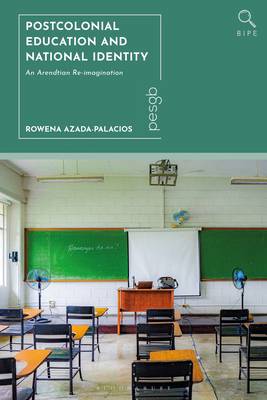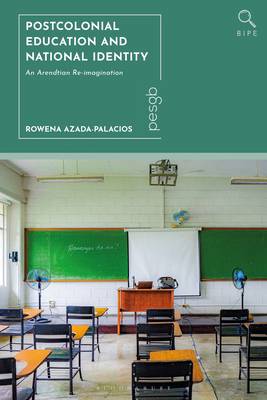
- Afhalen na 1 uur in een winkel met voorraad
- Gratis thuislevering in België vanaf € 30
- Ruim aanbod met 7 miljoen producten
- Afhalen na 1 uur in een winkel met voorraad
- Gratis thuislevering in België vanaf € 30
- Ruim aanbod met 7 miljoen producten
Zoeken
€ 44,45
+ 88 punten
Omschrijving
Recognizing the strategic role that national identities play in post-colonial struggles for justice, this book conceptualizes a new approach to teaching national identity that, following Hannah Arendt, emphasizes children's ability to renew culture. The book uses the Philippine colonial experience as a case study, and includes a genealogy of Hannah Arendt's concept of the 'social', including an analysis of how she used this idea to explore the role that schools play within the political community. Azada-Palacios problematizes the way that national identity is valued as an educational goal in Philippine schools and the way that Philippine citizenship education continues to aspire towards a homogeneity of culture. Through an examination of colonial-era documents, she traces this characteristic of colonial history, and identifies this aspiration as an unreflective perpetuation of American colonial educational policy that has not been sufficiently criticized.
Specificaties
Betrokkenen
- Auteur(s):
- Uitgeverij:
Inhoud
- Aantal bladzijden:
- 200
- Taal:
- Engels
- Reeks:
Eigenschappen
- Productcode (EAN):
- 9781350433342
- Verschijningsdatum:
- 25/06/2026
- Uitvoering:
- Paperback
- Formaat:
- Trade paperback (VS)
- Afmetingen:
- 156 mm x 234 mm
- Gewicht:
- 453 g

Alleen bij Standaard Boekhandel
+ 88 punten op je klantenkaart van Standaard Boekhandel
Beoordelingen
We publiceren alleen reviews die voldoen aan de voorwaarden voor reviews. Bekijk onze voorwaarden voor reviews.








